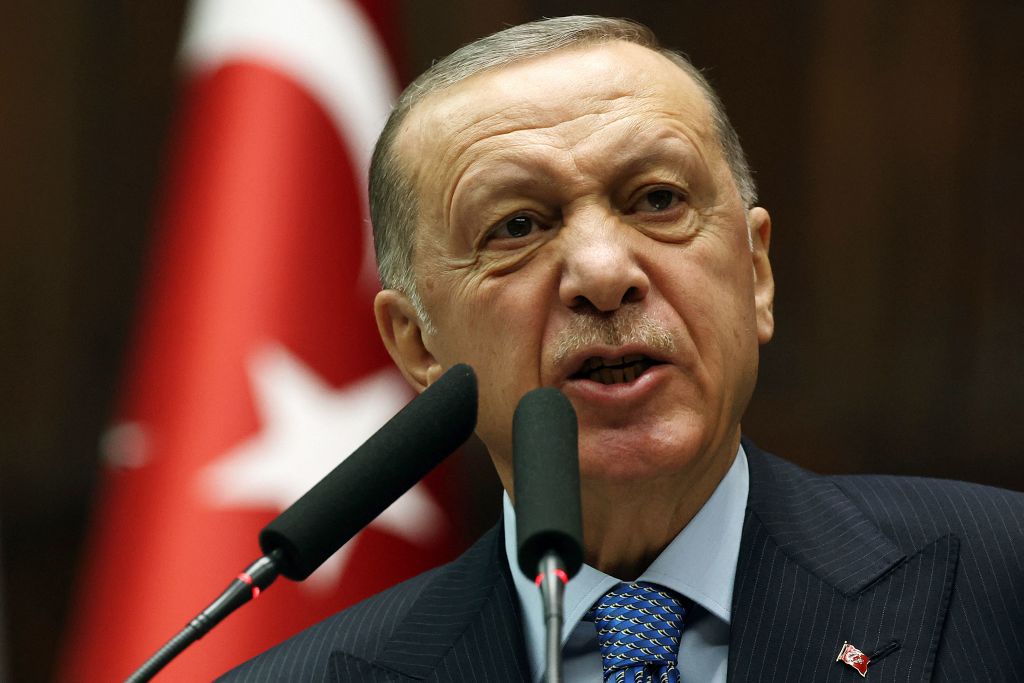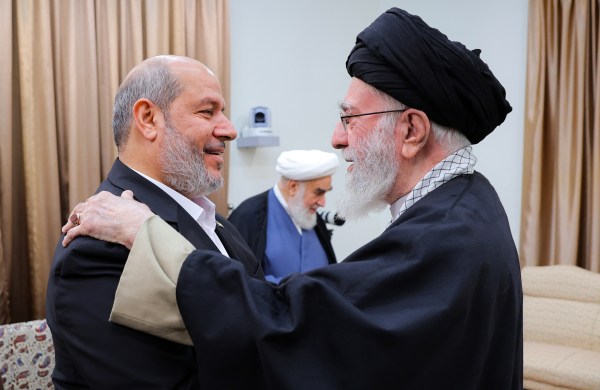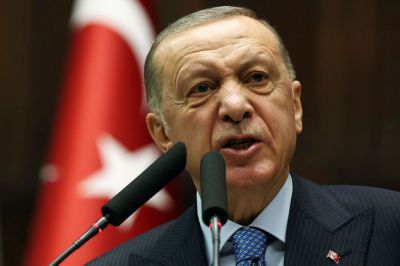Turkish President Recep Tayyip Erdoğan has been committed to toppling the regime of Bashar al-Assad for more than a decade. Turkey devoted a vast amount of diplomatic, military and economic resources to this costly pursuit. Erdogan’s efforts in Syria also damaged Turkish relations with the U.S. while drawing Ankara closer to the influence and patronage of Russia. While Washington harbored little love for the Assad regime, it chose to focus its attention on eliminating the threat posed by the Islamic State (ISIS), which for Turkey was at best a secondary threat until it was directly attacked in 2015. President Erdoğan instead focused his energies on Assad’s removal. However, the Turkish leader appears set to conduct a major U-turn. In the first months of 2023, Turkey is likely to push for a negotiated settlement with the Assad regime, one that will result in a handshake between the embittered leaders. Why?
For starters, there is Erdoğan’s realization that Turkey’s entire Syria campaign is a colossal failure. For the majority of the early 2010s, Erdoğan seldom refrained from calling Assad a “terrorist” who must be eliminated. But he had no strategic goal in mind, other than to presumably have a Sunni counterpart replace Assad, an Alawite Muslim. Thus Erdoğan relied on any willing group—mostly radical jihadist terrorist entities—to defeat Assad. Turkey even went as far as facilitating the transit of individuals who likely joined the ranks of radical entities affiliated to al-Qaeda and the Islamic State.
But Russia’s and Iran’s patronage of the Syrian regime changed Erdoğan’s tune, mainly because of Moscow’s determination to prop up the Damascus regime. Instead, he turned his attention to the Syrian Kurds and their relationship with the United States. Ankara’s persistent refusal to work with the U.S. to militarily eliminate ISIS resulted in Washington militarily backing the People’s Protection Units (YPG)—Syrian Kurds. Formally organized under the umbrella of the Syrian Democratic Forces (SDF), the American-backed forces proved decisive in dealing a death blow to ISIS on the ground. This partnership however angered Turkey, which considers the YPG as an offshoot of its own separatist Kurdish entity, the Kurdistan Worker’s Party (the PKK, an entity that the U.S. and the EU also designate as a terrorist organization). In the mind of President Erdoğan, American collaboration with the YPG/SDF equates to working with terrorists to overcome another terrorist threat—ISIS.
As angry as Erdoğan is with Washington for working with the YPG/SDF, it is important to remember that the Obama administration implored Ankara to work together to eliminate ISIS. Erdoğan refused. Additionally, Ankara has consistently downplayed the cordial relationship it once had with the Democratic Union Party (PYD), which would obviously undermine its insistent claim that the Syrian Kurds present a security threat to Turkey.
Given the increased certainty that Assad will continue to rule Syria—and with Erdoğan facing a presidential election later this year—he must now figure out how he can reach a settlement with Assad. Turkey continues to resent the existence of the Syrian Kurds and the American support they receive, which is mainly limited to assistance in combat operations against remaining ISIS entities. Erdoğan will need help from Damascus if he wants to wipe out the Syrian Kurds as a combat entity. But that help won’t be given freely: At a minimum, Turkey will have to agree to withdraw all of its military deployments from Syria, and recognize the sovereignty and independence of the Assad regime. Moreover, Assad himself is in no hurry to give Erdoğan what he wants. To the extent that Assad satisfies Erdoğan’s desires over Syrian Kurds is a realization that he would make Erdoğan look good in front of Turkish voters.
Assad might have come to this decision reluctantly, but it does present him with opportunities. The reconstruction of Syria in the post-war era will not only cost a lot, but will require the cooperation of Ankara. The 565-mile border between Syria and Turkey will be crucial to help facilitate the transfer of much needed goods and services, regardless of whether the latter gets a share of the reconstruction pie. Erdoğan is also interested in returning millions of Syrian refugees that Turkey has been hosting since the onset of the civil war. There is currently little appetite on the part of the Syrians to return to their homeland, mainly because many of them have established a viable life in Turkey. Nonetheless, Erdoğan will insist on trying to return a significant number, mainly to demonstrate to Turkish voters that he has listened and acted upon their perception that Syrian refugees get preferential treatment above Turkish citizens.
Both in the case of the Syrian Kurds and the refugee issue, it is clear that Erdoğan is primarily motivated by electoral concerns at home. His poll numbers remain weak, and he has to score big with Turkish voters in many areas. The Syrian portfolio is just one of them.
Most important, Turkey will have to withdraw its continued backing of Syrian rebel groups such as Hayat Tahrir Al Sham and other jihadist groups that are anathema to the Syrian regime. Ankara, under the pretense of containing the so-called threat posed by Syrian Kurds, has bankrolled and armed radical entities with limited acquiescence from Moscow. This support will have to be terminated.
Turkish and Syrian defense ministers met with their counterpart in Moscow in the final hours of 2022. Little information has been leaked from this meeting, but the intention was to facilitate a follow-up meeting of foreign ministers.
Many questions remain unanswered: What of the threat of a Turkish land invasion of Syria intended to defeat the Syrian Kurdish YPG? The Turkish government promised this after a November terror attack in Istanbul, which Ankara unconvincingly tried to attribute to the YPG. Will Erdoğan abandon this to facilitate a deal with Damascus? Similarly, what about the position of Washington? Under the 2020 Caesar Act, the United States has promised to sanction any entity that supports the Assad regime. The Biden administration has been timid in implementing this legislative requirement; however, Biden is also not likely thrilled at the prospect of Turkey reaching an accommodation with Assad. The administration’s main concern at this point is twofold: to continue working with the SDF to undermine ISIS capabilities and to ensure that the Al Hol prison camp in Syria that houses thousands of ISIS prisoners remains secure.
It is too early to gauge how the chips will fall in Syria in the post-civil-war period, and Erdoğan can never be counted upon to pursue a consistent line of policy. What we do know however, is that President Erdoğan is hell bent on being re-elected, and that the arena of foreign policy is key to achieving this. Reaching an agreement with the Assad regime will help him satisfy Moscow’s desire for stability in Syria, while possibly opening up economic opportunities for Turkey in Syria’s reconstruction. In the short term, he can look good in front of voters by getting the Assad regime to rein in the YPG/SDF and return a symbolic number of Syrian refugees.






Please note that we at The Dispatch hold ourselves, our work, and our commenters to a higher standard than other places on the internet. We welcome comments that foster genuine debate or discussion—including comments critical of us or our work—but responses that include ad hominem attacks on fellow Dispatch members or are intended to stoke fear and anger may be moderated.
With your membership, you only have the ability to comment on The Morning Dispatch articles. Consider upgrading to join the conversation everywhere.